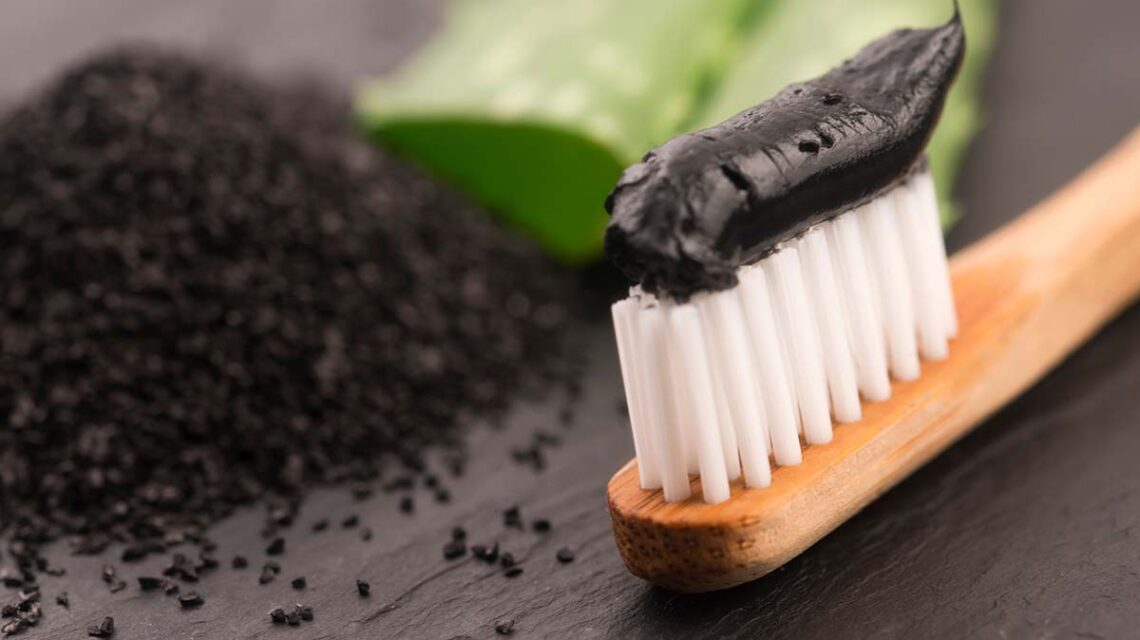In recent years, charcoal toothpaste has become a popular trend in oral care. It has many advantages and promises to whiten teeth and fight plaque. Many parents are considering it for their children’s oral hygiene routines. But, as with any new product, parents may have concerns about its safety. This blog post delves into the details of charcoal toothpaste. It explores the safety, benefits, disadvantages, and alternatives to using this toothpaste. This information will help you even as you plan to visit a pediatric dentist in Beverly Hills.
Table of Contents
What is a Charcoal Toothpaste?
Charcoal toothpaste contains activated charcoal as the main ingredient. Activated charcoal is carbon treated with oxygen to increase its porosity. This makes it more effective at absorbing impurities and toxins. In toothpaste, it removes surface stains, whitens teeth, and freshens your breath. Activated charcoal contains coconut shells, bamboo, or other natural sources.
How Does it Work?
Activated charcoal is porous. This allows it to trap and remove impurities and particles from the surface of the teeth. These particles include bacteria and stains. In toothpaste, activated carbon helps improve the teeth’ appearance. It also refreshes your breath. The toothpaste has antimicrobial properties. These prevent the growth of harmful bacteria in the mouth.
Charcoal toothpaste is like any other dental care product. Visit a pediatric dentist near me to get a professional opinion. Your pediatric dentist in Beverly Hills can also help weigh the risks and benefits.
Is Charcoal Toothpaste Safe for Kids?
Charcoal toothpaste is safe for adults. But, there are concerns that charcoal toothpaste may not be appropriate for children. Here’s what you need to know:
Age
Pediatric dentist in Beverly Hills recommends the use of fluoride toothpaste. This is especially for children above two years old. Fluoride is a mineral that strengthens teeth and prevents cavities. Charcoal toothpaste may not contain enough fluoride. It may not be effective in protecting children’s teeth. Hence, it may not be suitable for children under the age of 6.
Ingredients
Some charcoal toothpaste contains abrasive ingredients that can damage the enamel. Others have sodium lauryl sulfate, which can cause sensitivity or irritation. It is advisable to visit the best kids dentist in town. They can help you get the right choice and tell you the proper application for your kid.
Oral Health
Children with sensitive teeth cannot use it as it can be too abrasive. Also, children with swallowing difficulties, cannot use it as it may pose a choking hazard.
The Advantages and Disadvantages
Advantages of Charcoal Toothpaste for Kids
Most people praise charcoal toothpaste for its miraculous effects on teeth. Below are some advantages of using charcoal toothpaste from a pediatric dentist near me.
Whitening
The toothpaste may help to remove surface stains and whiten teeth. It brightens the smile and improves the overall appearance of teeth.
Freshening Breath
The toothpaste has antibacterial properties. These properties help reduce the growth of harmful bacteria in the mouth. this leads to fresher breath.
Removing Toxins
Charcoal toothpaste removes harmful bacteria and other substances from the mouth. This promotes oral hygiene.
Natural ingredients
Activated charcoal toothpaste contains all-natural ingredients. This makes it a more natural and safe alternative to traditional toothpaste.
Disadvantages of Charcoal Toothpaste
There are also some potential disadvantages of using charcoal toothpaste. They include:
Abrasion
Charcoal toothpaste may be too abrasive for children’s developing teeth and gums. Children’s teeth are softer and more susceptible to damage. Using harsh toothpaste could cause them harm. We advise you to visit the best kids dentist in town to get insight on proper usage to avoid this.
Ingestion of Charcoal
Children under 5 lack the motor skills needed to brush properly. They may swallow too much charcoal. This could cause digestive issues such as diarrhea, vomiting, or stomach cramps.
Sensitivity
The charcoal’s abrasiveness wears off the teeth’ enamel. This leads to sensitivity in some children and makes it uncomfortable to use.
Irritation
The charcoal could irritate the gums, leading to inflammation. This could further cause an increased risk of decay.
Choking Hazard
The toothpaste may pose a choking hazard to children with swallowing difficulties.
Lack of Fluoride
Charcoal toothpaste may not contain enough fluoride to protect children’s teeth. This makes it less effective in preventing cavities.
Messy
The charcoal can get on clothing, towels, or other items, making cleaning difficult.
Costly
It can be more expensive than traditional. You may also have a difficult time trying to find it in stores.
Effectiveness
Charcoal toothpaste may not be as effective as other whitening products.
What Other Alternatives Are Available for Charcoal Toothpaste?
There are several alternative options available, including:
Fluoride toothpaste
Fluoride toothpaste is effective at preventing cavities and improving oral health.
Natural toothpaste
Natural toothpaste contains all-natural ingredients and is free from harmful chemicals.
Whitening toothpaste
Whitening toothpaste removes surface stains. This improves the color and the appearance of the teeth.
Sensitive toothpaste
This is for people with sensitive teeth and gums. It can help reduce discomfort and sensitivity.
Conclusion
Dentists are yet to prove the safety and effectiveness of charcoal toothpaste. Parents should consider the potential risks and benefits in advance. It is also best to consult with a pediatric dentist near me before giving your child this product. Contact the best kids dentist in town at https://smileangels.com for a consultation today.



